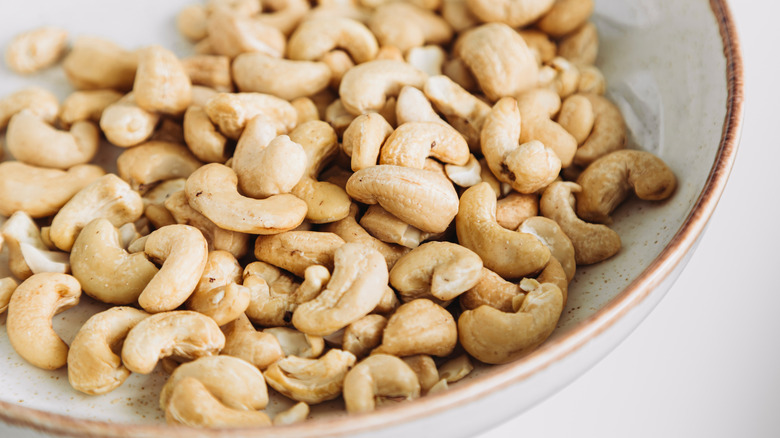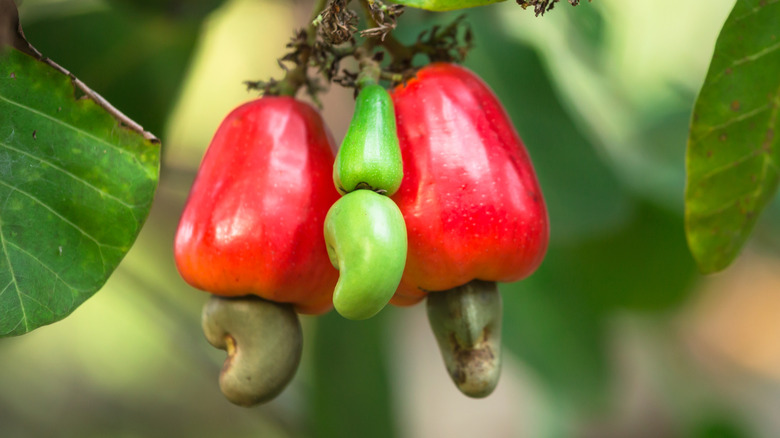Are Raw Cashews Safe To Eat?
Cashews are one of the tastiest nuts around, with a mild, creamy flavor that works beautifully in many recipes, like this pineapple cashew brûlée pie. They're also surprisingly nutritious, with tons of antioxidants, plant-based protein, and unsaturated fats. Next time you need a quick, filling snack (or want to make your own vegan milk), reach for a handful of cashews — the more ethically sourced, the better — but don't be surprised if you see the word "raw" on the container. Wait, didn't you hear something about raw cashews being poisonous? What gives?
Raw cashews are indeed poisonous to humans, but the word "raw" on cashew packaging for nuts that you buy from the store refers more to the fact that they don't have anything added to the nuts — no seasoning, including salt, no preservatives, that sort of thing. This is very different from actual raw cashews that have just been harvested and are still in their shell, or have been removed from their shell but not treated in any way; these contain a toxin called urushiol.
Urushiol is removed from the cashews through a process that involves steaming or boiling, and all cashews sold in stores receive this treatment. So while they're called "raw," they are totally safe to eat; it's the freshly picked and unprocessed raw cashews that are poisonous.
The fascinating source of actually raw cashews
Before the heating process that removes the urushiol toxin or the manufacturing that puts them into containers or bags that we buy at the grocery store, cashews are picked from trees. Native to Brazil, they're now grown all over the world, or at least where there is the topical climate to support them, including South East Asia and Africa. They also became a significant part of Indian culinary history after the nuts were brought to that country in the 16th century.
Cashews grow off an edible but nonetheless false fruit, the cashew apple, which looks kind of like an inverted red bell pepper and tastes decidedly tropical. Yes, you can eat the cashew apple raw, but not the nut itself, which grows out of the bottom of the fruit (cashews are also considered fruits) in what's known as a drupe. The drupe, of course, contains urushiol, which is in the same family as anacardic acid — the toxin that makes poison ivy so unpleasant.

